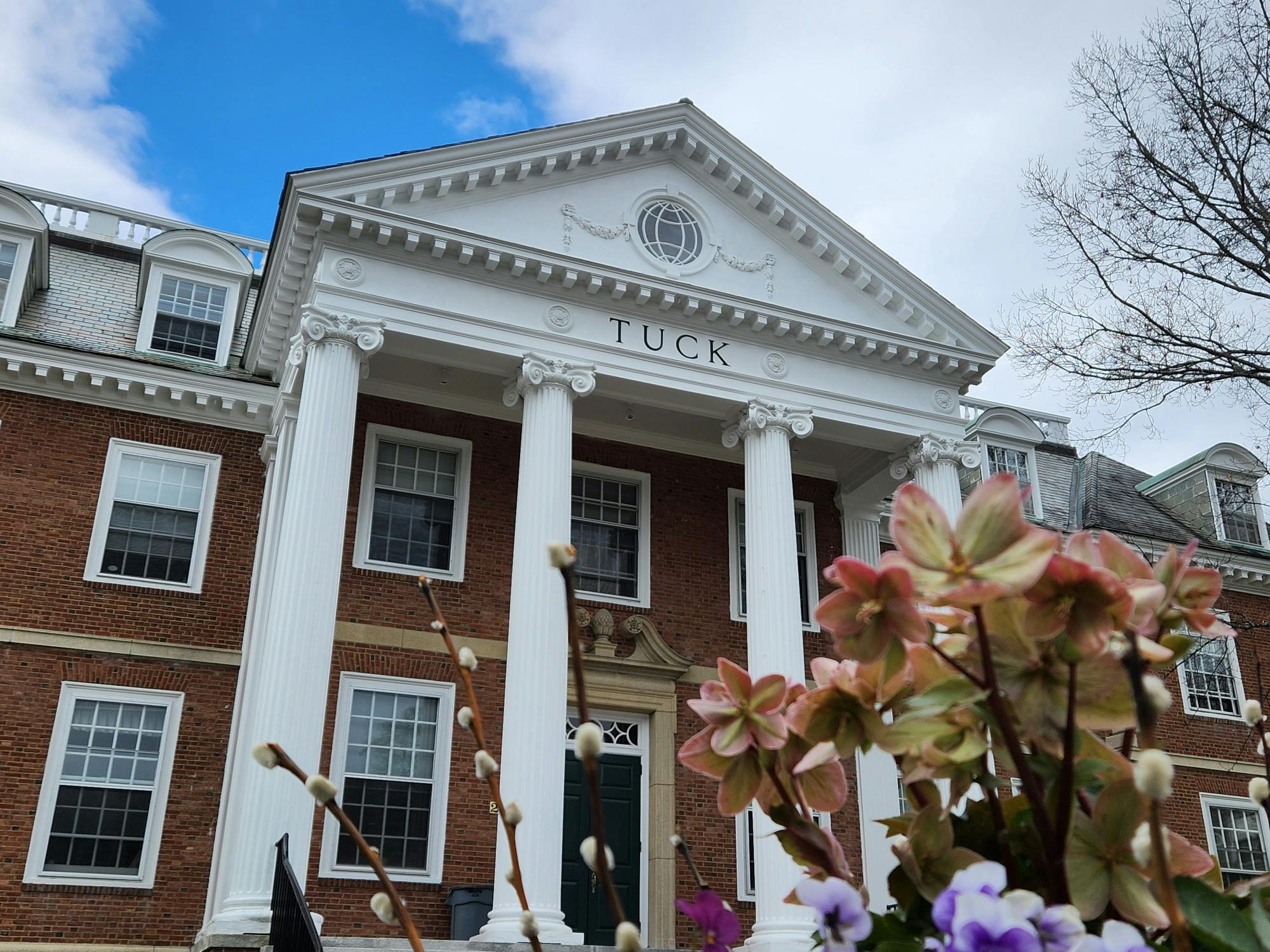Dartmouth is so well known for its undergraduate focus that before setting foot on campus, I wasn’t sure I’d ever interact with its graduate students. While undergraduates might feel cut off from the College’s numerous graduate programs — including the Geisel School of Medicine and Tuck School of Business — these programs have nonetheless drawn students to Hanover from far and wide. Curious why some graduate students decided to come to Dartmouth despite its emphasis on undergraduates, I spoke with several graduate students about their day-to-day lives as well as the benefits and downsides to choosing Dartmouth.
Michael Meng GR’23, who graduated from Geisel’s graduate program in quantitative biomedical sciences last year, said he came to Dartmouth because of its rural setting, which was a “similar” environment to his undergraduate experience at the University of Connecticut.
“For grad school, I wanted to pursue an education in a place that’s not in a very big city,” Meng said. “It’s my personal preference to study in a quiet town without too many distractions.”
Meng also explained that his time as a graduate student at Dartmouth allowed him to explore diverse passions — for example, he was able to pursue more “code-related” fields compared to his undergraduate years, where he was on the pre-medical and pre-dental track.
“We’re more flexible when it comes to selecting courses,” he said. “We can choose to take courses that are more advanced and across different schools: medical school, business school … I decided to come here to broaden my spectrum of interests and learn more transferable skills, not just stuff within my major.”
Irma Vlasac, a third-year Ph.D candidate studying cancer in the molecular and cellular biology program, said Dartmouth’s rural location was a significant change after growing up in a city. But it was the College’s sense of community that attracted her to Dartmouth.
“What made me choose Dartmouth was … my program’s community — it seemed like all the students knew each other very well,” Vlasac said. “Grad school is really hard, so having support and people that I can get along with — instead of trying to compete with — was something I would really want.”
Meng also praised the sense of community among graduate students.
“My classmates [and I] have a cohort of 20 or so students,” he said. “We all know each other. We definitely can have lots of fun because most of us live in houses; some of us live in off campus houses. So we mostly just gather together, play games and drink.”
On top of the strong ties between graduate students, Meng said he has made friends with undergraduates through campus clubs.
“Besides the people in my program, I was a part of this Christian fellowship [called] Agape,” he said. “It’s incredibly wonderful to meet so many amazing undergrads that are so kind [as] to accept grad students to be part of this fellowship as well.”
Sarah Hutchinson ’23 Th’24, who is currently pursuing a master’s degree in electrical and energy engineering, said her years on campus as an undergraduate provided her with a strong community that has endured through her fifth-year graduate program.
“I’ve made friends with all class years and remain active in the communities and organizations that I participated in as an undergrad, particularly triathlon,” Hutchinson said. “I have also met more graduate students at [the Thayer School of Engineering] who are here only for graduate degrees. It’s been fun to get to know them in classes.”
Despite the sense of community, graduate students do face several challenges. Vlasac, who is part of the Graduate Student Council, said housing is a significant hurdle for many graduate students.
“We don’t have any housing on Dartmouth campuses,” she said. “Some of the work that I did was … trying to get some housing back so that students can at least be on campus. Summit on Juniper is very expensive, and it’s not leased through Dartmouth … for graduate students.”
Meng added that some professors’ treatment of graduate students compared to undergraduates can prove challenging.
“The academic life here is great,” he said. “However, I think that [for] me personally, my research professor tends to emphasize … undergrads [over] grad students, which I think needs to be improved.”
On the other hand, Meng noted some professors “prefer grad students” because of the “limited knowledge” of undergraduates.
Hutchinson said her research experience has been primarily positive and that she has “learned a lot from it.”
“Research has been a really cool way to implement what I’m learning in classes and go beyond the learning I do in classes to make an impact in the world,” she said.
Although there are downsides to graduate student life when it comes to academics and housing, it seems for many, the perks outweigh the disadvantages. Despite busy schedules, long commute times and housing struggles, graduate students seem to enjoy deepening their passions while spending time with communities both on and off campus.




